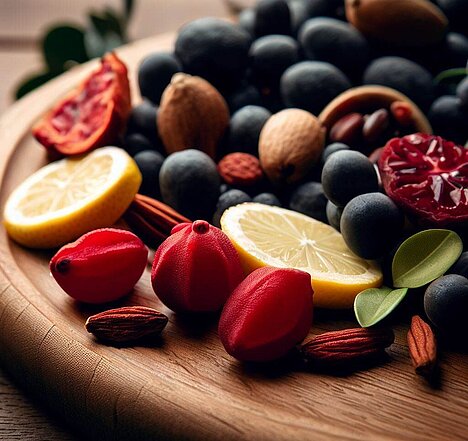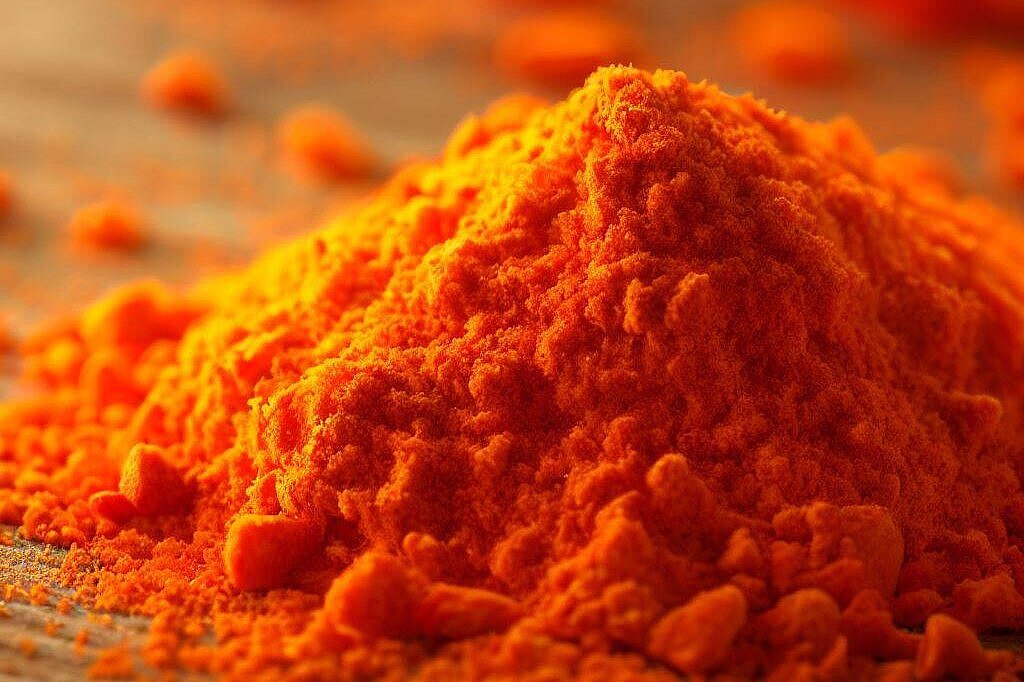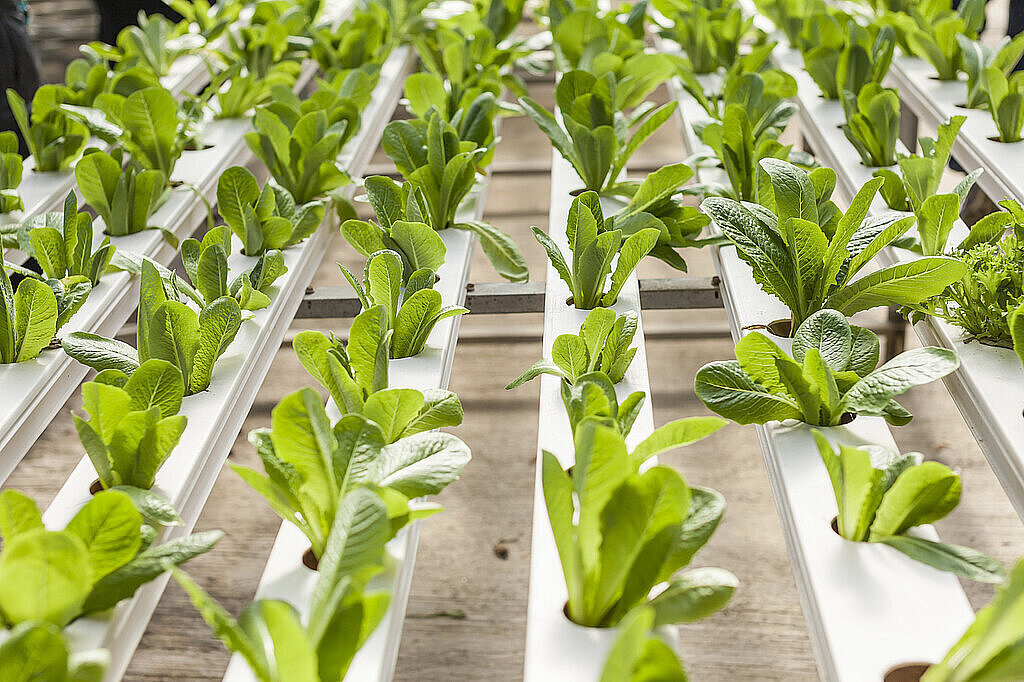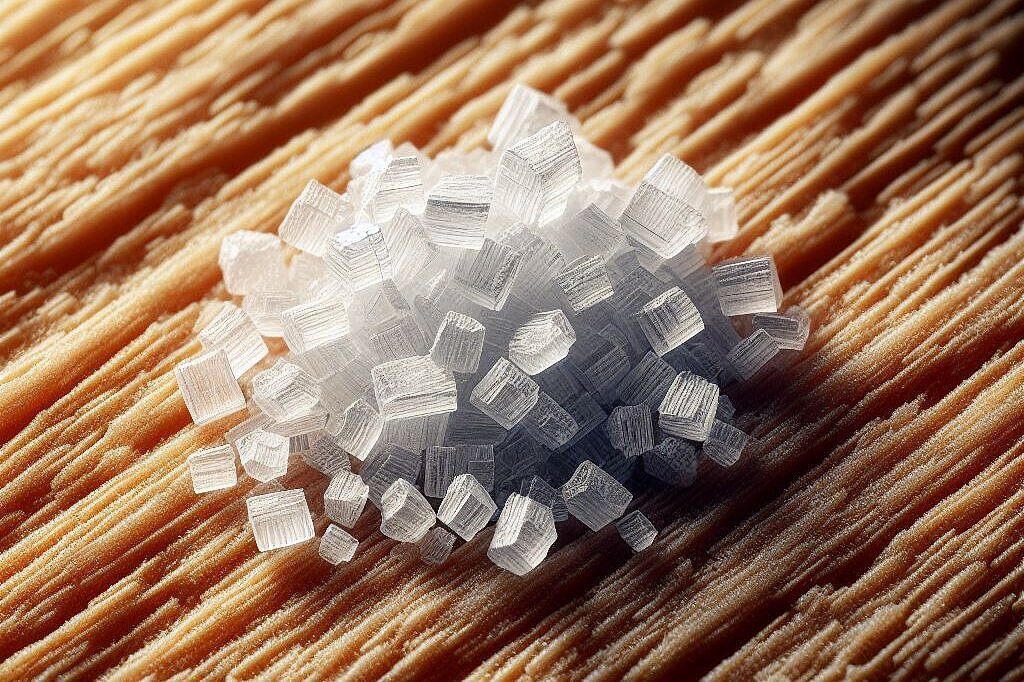flavonoids

You may have heard of flavonoids, but do you know what they are and how they can help your dog? In this article you will learn more about these valuable plant substances and how you can incorporate them into your four-legged friend's diet.
What are flavonoids?
Flavonoids are a large group of plant substances that belong to the so-called secondary plant substances. This means that they are not necessary for the growth or reproduction of the plant, but have other functions. For example, they protect the plant from pests or UV radiation.
For us humans and our dogs, flavonoids primarily have an antioxidant effect. This means that they can render free radicals harmless, which would otherwise cause cell damage. Free radicals are caused, for example, by stress, environmental pollution or ageing processes.
Flavonoids also have an anti-inflammatory effect. They can therefore help to reduce or prevent inflammation in the body. Inflammation can promote or aggravate many diseases such as arthritis, allergies or cancer.
Where can you find flavonoids?
Flavonoids are found in many different types of fruit and vegetables. For example, they are found in apples, pears, berries and vegetables such as broccoli and red cabbage. Cocoa, for example, is particularly rich in flavonoids (which naturally does not belong in the diet of four-legged friends because it contains theobromine, which is toxic to dogs).
Some medicinal plants also contain flavonoids. These include, for example, camomile, marigold, elderberry and nettle. You can offer these herbs to your dog as a tea or mix them into their food.
How can you give your dog flavonoids?
The easiest way is, of course, to offer your dog fresh fruit and vegetables. However, you should make sure that you only feed small quantities and wash or peel the fruit and vegetables well. You should also only choose varieties that are well tolerated by dogs. For example, you should not feed your dog grapes, onions or avocados.
Another option is to give your dog a high-quality dog food that already contains flavonoids. However, you should make sure that the food does not contain any artificial additives that could impair the effect of the flavonoids. In addition, you should always pay attention to the ingredients and adhere to the recommended feeding amount.
What are the benefits of a flavonoid-rich diet for your dog?
A diet rich in flavonoids can have many positive effects on your dog's health:
- It can strengthen the immune system and thus protect against infections.
- It can slow down the ageing process and thus improve quality of life.
- It can relieve inflammation and thus reduce or prevent pain.
- It can reduce the risk of chronic diseases and thus increase life expectancy.
Are there any disadvantages or risks of a flavonoid-rich diet for dogs?
Flavonoids are generally well tolerated and have no negative side effects for your dog. However, there are a few points you should bear in mind:
- Not all flavonoids are the same. There are different subgroups of flavonoids that can have different effects. For example, some flavonoids can influence blood clotting or strengthen or weaken the effect of medication. This is why you should always talk to your vet before giving your dog flavonoids as a food supplement.
- Not every dog reacts to flavonoids in the same way. Some dogs may be sensitive or allergic to certain fruits and vegetables. Therefore, you should always start feeding flavonoids slowly and carefully and observe how your dog reacts to them. If there are signs of intolerance such as diarrhea, vomiting or itching, you should stop feeding immediately and contact your vet.
- Not every dog needs the same amount of flavonoids. The optimal amount of flavonoids depends on various factors such as your dog's age, weight, health and activity level.
Flavonoids are valuable plant substances that can have many benefits for your dog's health. You can provide them through fresh fruit and vegetables or through high-quality dog food.
If you notice any signs of hypersensitivity or poisoning in your dog, you should see your vet immediately. We are not a substitute for a vet, but we try to be as accurate as possible. Every dog reacts differently and we recommend you get a second opinion or consult your vet if in doubt.
Stay healthy and take good care of your four-legged friend!😊
Similar to flavonoids
Carotenoids are natural colorants found in many plants. They are responsible for the yellow, orange or red color of fruit and vegetables such as carrots, pumpkin or peppers. There are over 600...
Antioxidants are substances that can render free radicals harmless. Free radicals are molecules that have one or more unpaired electrons and are therefore very reactive. They are constantly produced...
Vitamin C, also known as ascorbic acid, is a water-soluble vitamin that is found in many plant and animal foods. It is primarily known for its antioxidant effect, i.e. it intercepts free radicals...
Selenium is a chemical element that occurs in nature in various forms. There are organic and inorganic selenium compounds, which differ in their bioavailability and effect. Organic selenium...



